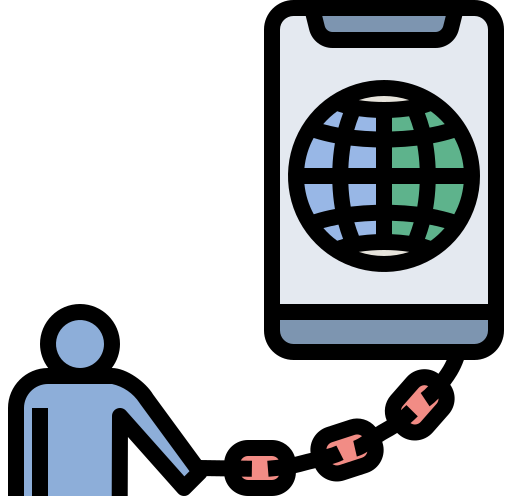Navigating the State of Addiction in the Age of Modern Technology and the Internet

In the digital era, modern technology and the internet have become integral parts of our lives, offering convenience, connectivity, and countless opportunities. However, it is essential to recognize the potential challenges that arise with this unprecedented level of connectivity. One of the pressing issues is the state of addiction, where individuals find themselves caught in unhealthy and compulsive behaviors related to technology and internet usage. In this blog post, we will explore the state of addiction in the context of modern technology and the internet, shedding light on its impact and offering insights into navigating this complex landscape.
Understanding Addiction in the Digital Age..
Addiction, in the context of technology and the internet, refers to a pattern of excessive and compulsive use that interferes with daily functioning, relationships, and overall well-being. The ubiquity of smartphones, social media platforms, online gaming, and instant access to information has created an environment ripe for addictive behaviors to manifest.
Factors Contributing to Addiction..
Several factors contribute to the development and perpetuation of addiction in the digital age:
Instant Gratification: Technology provides immediate rewards, such as social validation, entertainment, and information. The instant gratification associated with these experiences can create a cycle of dependency, as individuals seek continuous stimulation.
Social Connectivity: Social media platforms and online communication tools enable constant connection with others. However, the desire for social acceptance and fear of missing out (FOMO) can lead to excessive usage and addictive behaviors.
Gamification: Many apps and online platforms employ gamification techniques, incorporating rewards, achievements, and progress tracking. These elements can trigger addictive behaviors, as individuals strive for virtual accomplishments.
Escapism: The internet and technology can provide an escape from real-world challenges and emotions. This escapism, coupled with the endless distractions available, can lead to the neglect of essential responsibilities and a loss of control.
Navigating the State of Addiction: While addiction involving modern technology and the internet is a complex issue, several strategies can help individuals navigate and mitigate its impact:
Self-Awareness: Recognize and acknowledge your relationship with technology and the internet. Be mindful of your usage patterns, emotional responses, and signs of dependency.
Set Boundaries: Establish healthy boundaries by defining specific times and spaces for technology usage. Limit the use of devices during designated periods, such as meal times, bedtime, and quality time with loved ones.
Digital Detox: Take intentional breaks from technology and the internet. Engage in offline activities that promote well-being, such as hobbies, exercise, mindfulness, and face-to-face interactions.
Seek Support: If you feel that your relationship with technology is negatively impacting your life, consider seeking support from professionals, support groups, or therapists specializing in digital addiction.
Practice Mindfulness: Cultivate mindfulness in your digital interactions. Be present and intentional, avoiding mindless scrolling and multitasking. Engage in activities that align with your values and promote personal growth.
As technology continues to evolve and shape our lives, understanding and addressing the state of addiction in the context of modern technology and the internet is crucial. By fostering self-awareness, setting boundaries, taking breaks, seeking support, and practicing mindfulness, we can regain control over our digital lives and create a healthier relationship with technology. Let’s embrace the potential benefits of modern technology while striving for balance, well-being, and meaningful connections in this interconnected world.